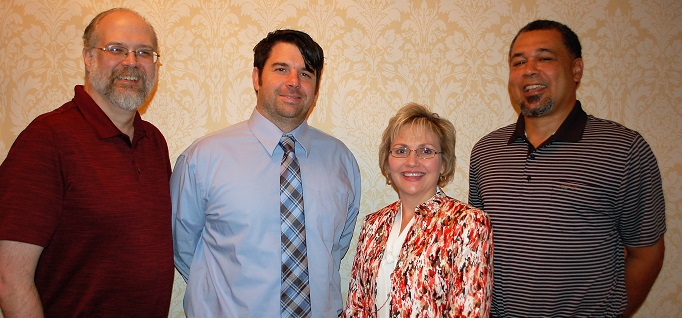The perspective of a MentorLinks mentor
By Jim Hyder
March 7, 2017
A MentorLinks mentor shares his experience working with community college teams to strengthen technician programs.
I have had the privilege of being a mentor in the last two MentorLinks cohorts. Supported by the National Science Foundation, MentorLinks is designed to help colleges develop or strengthen technician training programs in STEM (science, technology, engineering and math) fields through mentoring, professional development opportunities and technical assistance.
I was expertly paired with two colleges who had applied for help developing program goals, outputs and outcomes, and industry advisory boards. I say “expertly paired” because the MentorLinks team has a real knack for placing the right skills with the right needs. One of the best parts of being in MentorLinks is you will never be alone; if your team has a challenge that you don’t have all the answers for, you’ll have the other mentors in your cohort to depend on and learn from. The networking opportunities for mentors are full of opportunities that you can’t begin to imagine until you’ve jumped in.
Unfortunately, a lot of colleges see the small monetary amount of the $20,000 grant and fail to understand the benefits of the networking, technical assistance and mentoring built into the program. During a mentee teams’ very first meeting, they participate in the Advanced Technological Education (ATE) principal investigators conference and see the entire community at its best. All current ATE projects and centers showcase what they offer. My first mentee team met personnel that they partnered with to write their first “New to ATE” project grant. Four years later, they are still working with these people as peers. They leveraged the $20,000 MentorLinks funding to write a $200,000 winning ATE proposal.
ATE projects are not successful if they don’t disseminate and partner with educators, so they are more than eager to meet with new potential partners and mentees who are willing to use project/center offerings. I have personally witnessed some of the most genuine win-win relationships being established by new mentees at the ATE conference. The mentees occasionally end up with more technical assistance and informal mentorship then they could have imagined.
If a mentee college thinks they have an idea of something they need help with, I would highly encourage them to apply. Nothing is written in stone during the application process. During that first meeting, and even after meeting with your mentor and engaging with the ATE community, the mentee college has the opportunity to make changes to what they proposed to do with the MentorLinks funding. I’m not aware of another program that provides applicants that degree of flexibility.
I was asked why one would want to mentor, and after some brief thought I found myself asking, “Why WOULDN’T someone want to mentor?” The ATE community gives so much; it’s easily the best vehicle I am aware of to give something back. The MentorLinks program is the best professional development I have experienced, and the genuine appreciation I have seen from my mentees is so professionally rewarding that I don’t have words to describe it.
The request for proposals for MentorLinks teams and mentors is now online. Apply by April 28.



